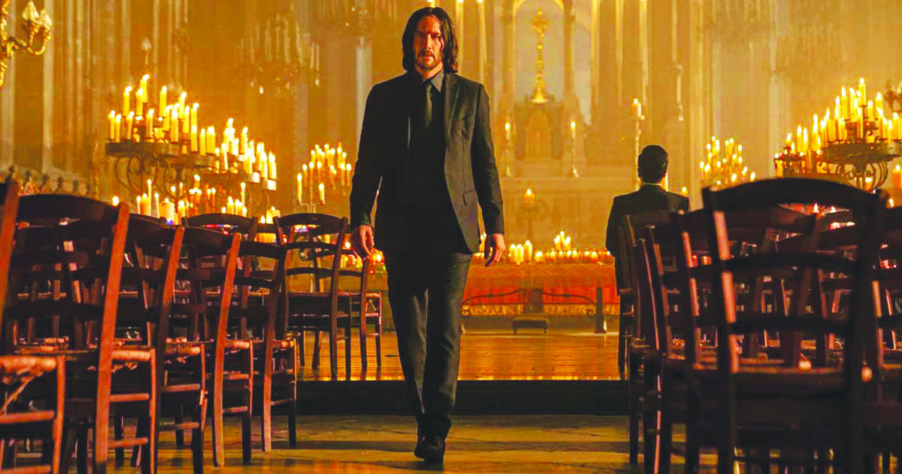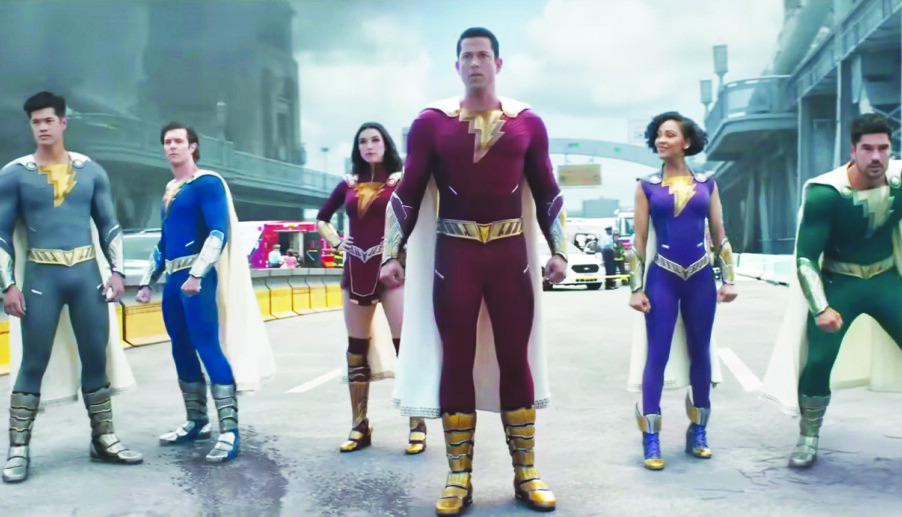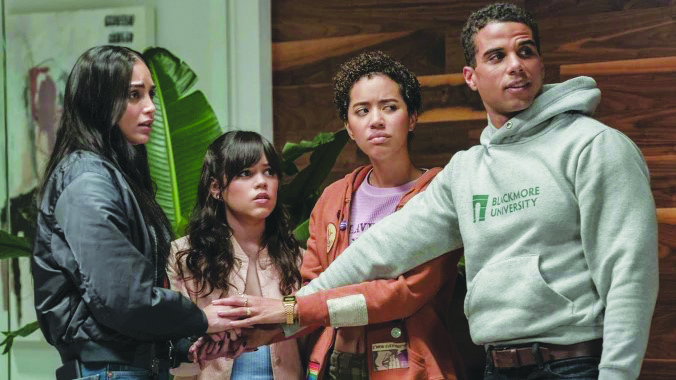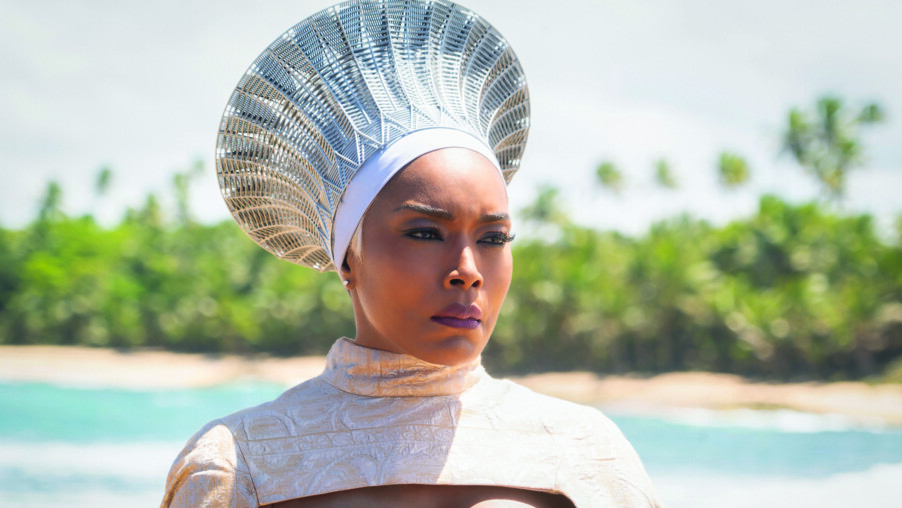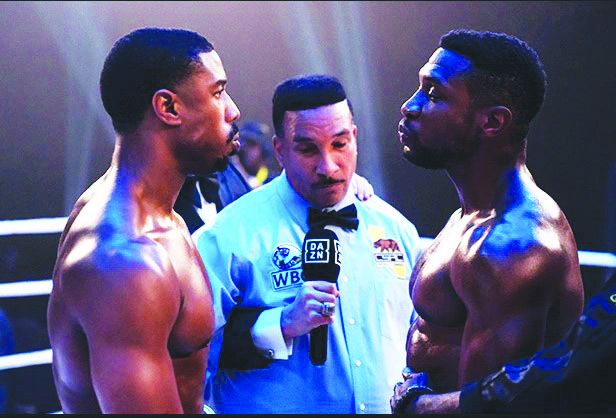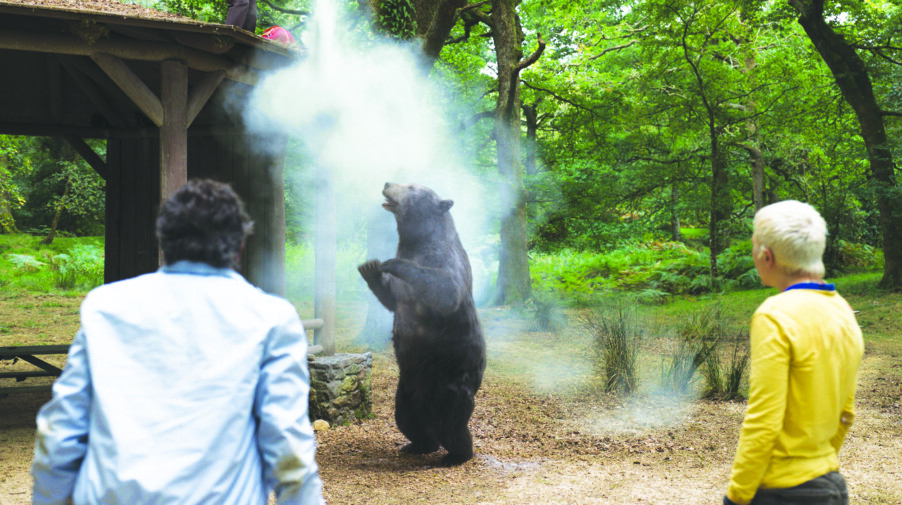Keanu Reeves gets what feels like more fight scenes and even sparser dialogue in John Wick: Chapter 4.
John Wick (Reeves) has recovered from being shot by friend/Continental Hotel manager Winston (Ian McShane) at the end of the last movie (a benevolent shooting, I think?). He’s hanging out with the Bowery King (Laurence Fishburne, who is still having the very best time), who gets him a new suit. And off John Wick goes to the desert, to try to get someone to lift his “excommunicado” status in the assassin world (which means that killers worldwide are looking to take him out to collect a sizable bounty).
Meanwhile, back at the Continental, the classy assassin hang-out, the High Table (the underworld’s ruling body) has decided to mark the hotel as condemned, which is even worse than when it was deconsecrated or whatever in the last movie. An hour after The Harbinger (Clancy Brown) shows up to deliver the news about the hotel’s condemnation, the building is demolished like a faded Las Vegas casino and Concierge Charon (Lance Reddick, who was awesome in everything and died on March 17 and will be missed) is, uhm, let go.
The person behind all of this punishment aimed at Winston for the crime of helping John Wick is the Marquis (Bill Skarsgard), a snootypants we will enjoy rooting against. The High Table has given him a blank check to do whatever needs to be done to put an end to John Wick, both the man and the legend. The Marquis calls into service Caine (Donnie Yen), a former assassin who like John Wick tried to leave the life behind (possibly agreeing to have himself blinded to do it?). But he has a daughter and to keep her safe he occasionally freelances, I guess. He reluctantly takes the job to kill John Wick, an old buddy.
Caine is also old buddies with Shimazu (Hiroyuki Sanada), manager of the Osaka Continental, which is where John Wick goes for help. Shimazu’s concierge and daughter Akira (Rina Sawayama) isn’t so keen on Wick’s presence at the hotel; she’s less concerned with old friendship and more concerned with their continued survival in the here and now, especially when High Table henchmen show up with Caine.
Also at the Osaka is a character we come to know as Mr. Nobody (Shamier Anderson), a contract killer with a loyal dog because somebody in this movie has to have a Very Good Boy who can do cute doggie faces in the midst of balletic violence. Mr. Nobody is in the game to get John Wick but first he wants the “getting” price to go up and helps orchestrate this bounty inflation by occasionally knocking off competing assassins.
There are several memorable set-piece battles in John Wick Chapter 4: Caine fights a series of dudes in a kitchen using motion sensors; John Wick fights guys standing in the street while fast-moving traffic flows around and between them; John Wick fights in a building as we watch from overhead, giving an illusion that we are watching a continuous shot filmed through several rooms; multiple characters fight multiple characters on a steep set of stairs with the up and down climbing and falling part of the choreography of the fight. And in between that are several scenes of smaller battles and one-on-one fights. These scenes are all exciting and extremely well-choreographed. Like, there needs to be an Oscar that recognizes the skill of creating an energetic, technically beautiful fight scene that is also believable both for two humans to participate in and in the context of the movie. There needs to be an Oscar for this and it needs to go to a John Wick movie because this is a skill.
And yet.
And yet maybe this movie could have had fewer of these scens? I can’t believe I’m saying that but I think fewer and better highlighted would have been the way to go with these stretches of the movie which, when I think back to consider them individually, really were a marvel. In the movie, however, there is a frosting on frosting on frosting effect in the way this movie piles up fight scenes without the cake that allows the punch of sugar to really come through. The original John Wick was an hour and 41 minutes long. Each sequel has been a little bit longer than its predecessor, with this one clocking in at two hours and 49 minutes. Somewhere in here is a solid, well-paced, energetic hour-and-50-minute movie. But this nearly three-hour version gets bogged down in its questing — John Wick going here to engage with this person, then there, then we’re meeting these people. This has always been a part of these stories, particularly in the second and third installments, but it seemed a little more spinning-its-wheels here than it did in previous movies. Also, I did have the sinking feeling that some of this was setting up potential side-quel elements — Caine, Akira and of course Mr. Nobody and his dog.
So, Chapter 4? Loved the Keanu, as usual; loved the Fishburne and the McShane absolutely acting to, not just the back row, but the people on the street in front of the theater. Loved the precision of the fights, loved the ideas and the cleverness that went into them. This movie isn’t the gleeful ride of its immediate predecessor but it was an overall better-than-average bit of entertainment. B
Rated R for so so so much killing (“pervasive strong violence and some language” is how the MPA describes it, according to filmratings.com). Directed by Chad Stahelski and written by Shay Hatten and Michael Finch, John Wick: Chapter 4 is two hours and 49 minutes long and is distributed in theaters by Lionsgate.
Featured photo: John Wick: Chapter 4

